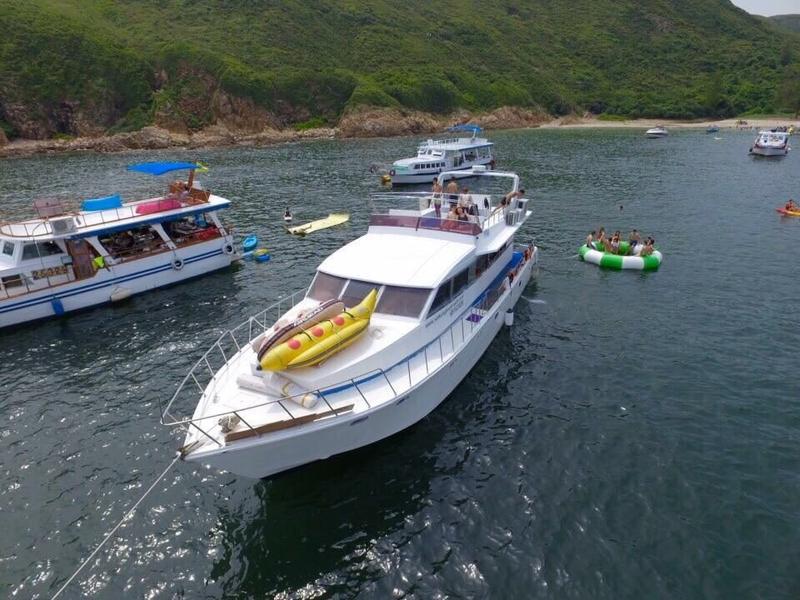 Passengers take a trip on a boat. Industry experts say travelers will pay more attention to facilities that ensure hygiene while choosing transportation in a post-pandemic world. (PHOTO PROVIDED TO CHINA DAILY)
Passengers take a trip on a boat. Industry experts say travelers will pay more attention to facilities that ensure hygiene while choosing transportation in a post-pandemic world. (PHOTO PROVIDED TO CHINA DAILY)
Domestic and short-haul travel have taken the front seat on the Chinese mainland since it emerged from more than three months of lockdown restrictions triggered by the coronavirus pandemic, driven by pent-up demand from vacation-starved trippers.
“The first category of travel that’s making its mark is domestic ‘visiting friends and relatives’ tourism,” said Ralph Hollister, a hotel and tourism analyst at GlobalData. Domestic tourism is a safer, cheaper and easier option for travelers, at least for the time being, he said.
During last month’s five-day Labor Day holiday break from May 1 to 5, revenue from domestic tourism hit US$47.56 billion yuan (US$6.69 billion), with more than 114 million trips made — far beyond what the China Tourism Academy had expected.
ALSO READ: Eased rules for inbound flights set to facilitate travel
Hong Kong’s staycation market is expensive and smaller than expected as people would rather travel to neighboring Taiwan which is more cost-effective
Bill Lau, managing director of Holimood
A shift toward domestic and short-haul travel is fast taking shape on the mainland but, for Hong Kong, which lacks a domestic tourism market in the real sense of the word, residents don’t have much of a choice. The only probable alternatives are local natural attractions, such as the outlying islands, beaches or hiking trails.
Consultancy firm OC&C has seen creative ideas and new types of trips that can be done in small groups in the midst of the pandemic — cycling, hiking or camping experiential tours. But, the consultancy reckons it’s a pretty minute market compared with outbound tourism that had previously raked in the bulk of the city’s tourist dollars.
Holimood — a local booking platform for holiday rentals and yachts — saw its webpage viewing surge 10 to 20 percent from pre-pandemic levels as people showed growing interest in exploring local fun activities.
However, viewers who would ultimately make reservations were few, according to Bill Lau, managing director of Holimood.
A number of people had asked about renting a boat, but due to the social-distancing rules still in force, they would be reluctant to sail with just a few people as it’s not cost-effective for a boat party, Lau explained.
On Holimood’s website, renting a junk boat, which could carry a maximum of 43 people for eight hours, costs from around HK$12,000 to HK$17,000.
Besides yachting, it offers other options like camping, squid fishing and remote partying. Following the partial easing of social-distancing restrictions, allowing for up to eight people to gather at any one time, Lau said there’s a noticeable rise in the number of people booking camping sites.
However, with limited local holiday activities due to social-distancing curbs, Holimood, which focuses primarily on connecting consumers with Hong Kong’s staycation activities, laments it still has its hands tied.
“Hong Kong’s staycation market is expensive and smaller than expected as people would rather travel to neighboring Taiwan which is more cost-effective,” said Lau.
READ MORE: International airline travel creeps back with ‘bubble’ corridors
As the pandemic has crippled some of Holimood’s popular businesses, Lau said the company has turned to business development during this difficult time — team building, corporate events and arranging weddings with its available outdoor venues.
Initially taking a leaf from Airbnb’s business model — an online marketplace for lodging, primary homestay and tourism experiences — Holimood made its foray into Hong Kong’s yacht market in 2013.
“We hope the government could gradually ease the social-distancing rules as people in Hong Kong have a quite high sense of hygiene and would practice it in public places,” Lau said.


